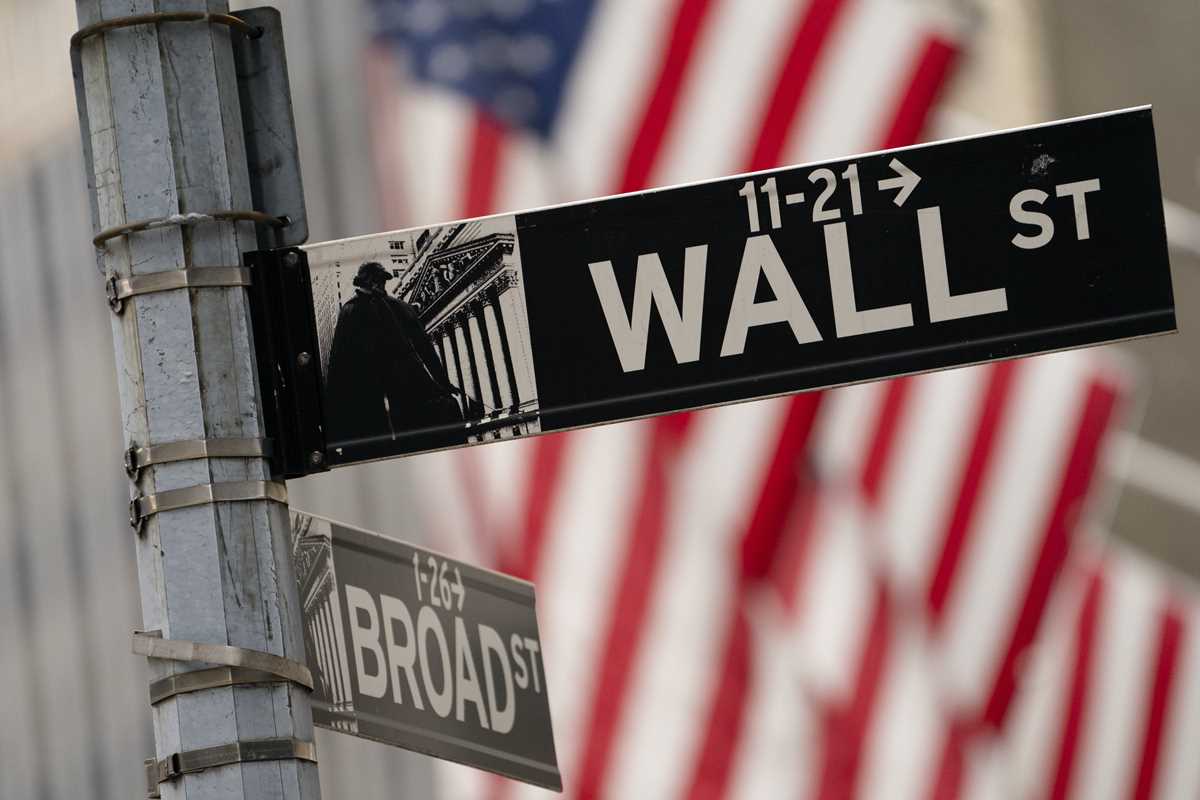 The New York Stock Exchange operates during normal business hours in the Financial District, Wednesday, Oct. 13, 2021, in the Manhattan borough of New York. (AP Photo/John Minchillo)
The New York Stock Exchange operates during normal business hours in the Financial District, Wednesday, Oct. 13, 2021, in the Manhattan borough of New York. (AP Photo/John Minchillo)Major U.S. stock indexes closed mostly higher Thursday, snapping a three-day losing streak for the S&P 500 despite another choppy day of trading.
The benchmark index rose 0.3% after having been down 0.5% in the early going. It's still on pace for a 0.6% weekly loss. The Dow Jones Industrial Average ended flat, while the Nasdaq rose 0.7%.
Most of the S&P 500′s 11 sectors rose, with technology and communication accounting for a big share of the gains. A mix of companies that rely on consumer spending also helped lift the market. Financial and energy companies fell.
Investors had their eye on company earnings and inflation data. They also got more insight into the Federal Reserve's next policy moves after the central bank released the minutes from its policymakers' meeting last month.
The minutes, which revealed Fed officials discussed how the central bank might begin to taper the unprecedented financial support it has been giving the economy since the early days of the pandemic, may have helped give the market an afternoon boost after its downbeat start, said J.J. Kinahan, chief strategist with TD Ameritrade.
“You’re starting to get a framework of how they’re going to go about it, and the market is really just desperate for some clarity,” he said. "At least we’re starting to see the game plan.”
Fed officials agreed at their last meeting that if the economy continued to improve, they could start reducing their monthly bond purchases as soon as next month and bring them to an end by the middle of 2022.
The S&P 500 rose 13.15 points to 4,363.80. The Dow slipped 0.53 points, or less than 0.1%, to 34,377.81. The tech-heavy Nasdaq gained 105.71 points to 14,571.64.
Small company stocks also rose. The Russell 2000 index added 7.70 points, or 0.3%, to 2,241.97.
Banks were among the heaviest weights on the market. JPMorgan Chase fell 2.6% after its latest earnings showed that the bank struggled to grow revenues with interest rates at near-zero levels. Falling bond yields also weighed on the sector, which relies on higher yields to charge more lucrative interest on loans. American Express fell 3.5% and Capital One Financial dropped 3.3%.
The yield on the 10-year Treasury fell to 1.54% from 1.58% late Tuesday.
Delta Air Lines slid 5.8% for the biggest drop in the S&P 500 after warning investors that rising fuel prices will challenge its ability to remain profitable. It also forecast higher labor costs. United Airlines fell 3.9% and American Airlines slid 3.3%.
"Crude oil is going to continue to weigh on the transportation sector, particularly the airlines,” Kinahan said.
The latest update on inflation was mostly taken in stride. Consumer prices rose 5.4% in September from a year ago, matching the highest rate since 2008. The figure is slightly higher than economists expected. A wide range of businesses have been dealing with supply chain disruptions and delays amid rising demand for goods, and many have warned that will increase costs and crimp their financial results.
“There’s a lot of nervousness and anxiety about inflation right now," said Kristina Hooper, chief global market strategist at Invesco. “We're going to see a lot of volatility and shifts in leadership; that's just part of the transition period we're in.”
Many companies have been raising prices to offset higher shipping and raw materials costs. Analysts are concerned that higher prices could stall consumer spending, the key driver for economic growth. The latest report from the Labor Department showed that the costs of new cars, food, gas, and restaurant meals all jumped in September.
Investors will get more data on consumer spending on Friday when the Commerce Department reports retails sales for September.
More big banks are scheduled to release earnings this week. Bank of America, Wells Fargo and Citigroup will follow with their latest quarterly results on Thursday. Corporate earnings reports will ramp up after this week and analysts have said that might help show investors a clearer path ahead in what has been a choppy market.
Before you consider United Airlines, you'll want to hear this.
MarketBeat keeps track of Wall Street's top-rated and best performing research analysts and the stocks they recommend to their clients on a daily basis. MarketBeat has identified the five stocks that top analysts are quietly whispering to their clients to buy now before the broader market catches on... and United Airlines wasn't on the list.
While United Airlines currently has a "Moderate Buy" rating among analysts, top-rated analysts believe these five stocks are better buys.
View The Five Stocks Here
MarketBeat has just released its list of 20 stocks that Wall Street analysts hate. These companies may appear to have good fundamentals, but top analysts smell something seriously rotten. Are any of these companies lurking around your portfolio? Find out by clicking the link below.
Get This Free Report